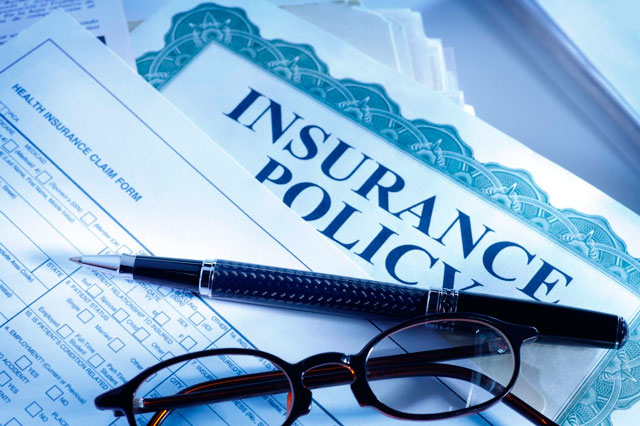For your peace of mind, if you open any type of store, you need to know the small business insurance to cover potential risks such as liability claims, theft, equipment damage, injury or accident.
What are the prices of small business insurance in New York
The small business insurance and its price depends on the needs you evaluate and based on this you will choose between the different types of coverage that are appropriate for your business.
In general, beyond the state where your business is located there are some coverages that are common to all such as general liability insurance, commercial motor insurance and property insurance.
Therefore, you must evaluate the type of coverage that your company needs, combine several types by choosing them separately or buy a package known as BOP, which allows you to save on cost.
In fact, you may need only some or all of the types of coverage depending on the specific protection that your type of business requires.
You may even need errors and omissions insurance known as professional liability insurance. For this reason, to calculate costs, you need to evaluate the specific type of coverage or the combination of several insurance policies.
Workers compensation insurance:
For example, if you open your business as a sole proprietor, you generally will not need workers’ compensation insurance.
Additional liability coverage:
If your business transports commercial supplies such as a cleaning services business that transports them from one location to another, you will need additional liability coverage in the event that those supplies are toxic and are handled by workers.
You will also need it if your employees are in charge of handling large equipment that can cause great damage.
Product liability insurance:
In the event that your business is dedicated to the sale of products, you should think about product liability insurance and if you hire employees to take charge of handling the money or if they access the funds, you should consider that you can protect yourself against commercial fraud. Taking into account that you think of a small business, the cost per year averages 500 dollars.
Liability insurance:
Although there is no average cost of commercial liability insurance, it can be evaluated taking into account different examples such as:
The cost of sole proprietorship general liability insurance is $ 500 per year, but if the business is a consulting business it is $ 3,000 per year.
Depending on the risk of the occupation of the business, the cost of the insurance will decrease or increase depending on it.
For example, if you open a home office just to prepare the garments by folding and delivering them, your responsibility will be limited, but if your business refers to a service as a landscaper, since there is a greater risk, the cost can exceed $ 15,000 per anus.
Errors and omissions insurance:
This type of insurance corresponds to a specific and common coverage for consultants and accountants or another type of professional. If you offer your services, you must protect yourself against the risk of a legal lawsuit.
In this case, the average cost is between $ 1,000 and $ 3,000 per year for $ 1 million of coverage.

What are the prices of insurance for small businesses in Florida
In the case of small business insurance In Florida you should consider that if you hire 10 full-time employees with an average annual salary of $ 25,000 or less, they may qualify for the full credit, since the amount of the credit is reduced if you have a company with full-time workers and salaries higher, until it is completely eliminated if you hire 25 or more workers full-time or with average annual wages above $ 50,000.
In fact, you should keep in mind that the eligibility rules are based on the number of full-time employees and not the total number of employees.
General liability insurance: Anyway, you must think that the annual premium will depend on the type of business you plan to open, however you must calculate that the average cost is between 374 and 696 dollars.
Commercial vehicle insurance:
If your business will use vehicles to work and for your employees to move from one place to another as occurs in a cleaning services business, you will have several vehicles and therefore you will need commercial motor insurance to cover you from an accident that occurs on the way, then you should bear in mind that the annual premium is between $ 1,533 and $ 3,152,
Liability insurance and surety bond:
Liability insurance is useful because a client can sue you for any reason and you can cover yourself with this type of insurance.
But if the amount of the claim is greater than the coverage of the amount of the liability insurance, you can pay an annual premium of $ 400.
Many clients may require a guarantee bond, in this way the insurance company will reimburse your client the corresponding amount if you breach the contract or if you have any problem during your work, with an average annual premium of $ 100.
However, first of all you should always take into account the type of coverage your business needs, for example thinking about what each of them covers:
Business owner policy:
You will need this type of policy if you consider necessary coverage of the property against theft or fire, civil liability to cover you for possible injuries suffered by people who come to your business or if they suffer injuries after having used your product.
Property insurance:
You will need this type of insurance if you consider that your business should be protected against damage or loss due to vandalism or fire, after which your property will be affected.
However, you should know that as it is a commercial property coverage, it can be construction coverage with coverage for damage to the property either by vandalism or fire and also personal property, in which case it covers everything that is inside the property such as furniture, materials supplies, inventories, files, etc.
Liability insurance:
Also called Coverage against errors and omissions, it protects you against a lawsuit that you may have received due to an error or omission in your work.
This is the ideal and common type of coverage for professionals who provide their services.
Umbrella insurance: This type of insurance provides you with a type of policy with additional coverage to insurance for losses that exceed the limit of your primary liability policy.
Tips for Buying Business Insurance
1. Assess your risks:
Insurance companies determine the level of risk they will accept when issuing policies. This process is called underwriting. The insurance company reviews your application and determines whether it will provide all or part of the coverage requested. Each policy written has a premium and a deductible. A premium is the price you pay for insurance.
Premiums vary widely among insurance companies and depend on several risk factors, including the location of your business, the type of building, local fire protection services, and the amount of insurance you purchase. A deductible is the amount of money that you agree to when making a claim. Generally, the higher the deductible you agree to pay, the lower your premium. However, when you accept a high deductible, you are taking some financial risk. Therefore, it is important to assess your own risks before shopping.
The National Federation of Independent Business (National Federation of Independent Businesses) provides information on choosing insurance to help you assess your risks and ensure that you have insured all aspects of your business.
2. Compare prices
The scope and costs of coverage vary from company to company. Some brokers specialize in insuring specific types of businesses, while others may connect you with specific policies for your business activities. For example, if you operate a towing service, you will want to find an agent who can help you find policies that specifically cover auto service businesses. Often times, specialized brokers can offer you the best coverage and the best rates.
3. Consider a Business Owner Policy
Insurance can be purchased separately or in a package called a business owner policy (BOP). Buying separate policies from different insurers can result in higher total premiums. A BOP combines typical coverages into a standard package and is offered at a premium that is lower than if each type of coverage were purchased separately. Typically, BOPs consist of hedging assets, general liability, vehicles, business interruption, and other types of coverage common to most types of businesses. BOPs simplify the insurance buying process and can save you money. However, make sure you understand the scope of coverage in whatever BOP you are considering. Not all types of insurance are included in a BOP. If your business has unique risks, you may need additional coverage.
4. Find an authorized and reputable agent
Commercial insurance brokers can help you find policies that fit the needs of your business. Brokers receive commissions from insurance companies when they sell policies, so it is important that you find a broker who is reputable and interested in both your needs and yours. Make sure your broker understands all the risks associated with your business.
Finding a good insurance agent is just as important as finding a good attorney or accountant. You should always look for one that has a license. State governments regulate the insurance industry and license insurance brokers. Many states provide a directory of licensed agents. If you are looking for a new agent, start with your state department of insurance.
5. Evaluate your insurance coverage on an annual basis
As your business grows, so do your responsibilities. You don’t want to be caught for lack of insurance in the event of a disaster. If you have purchased or replaced equipment or expanded your operations, you should contact your insurance broker to discuss the changes in your business and how they affect your coverage.
